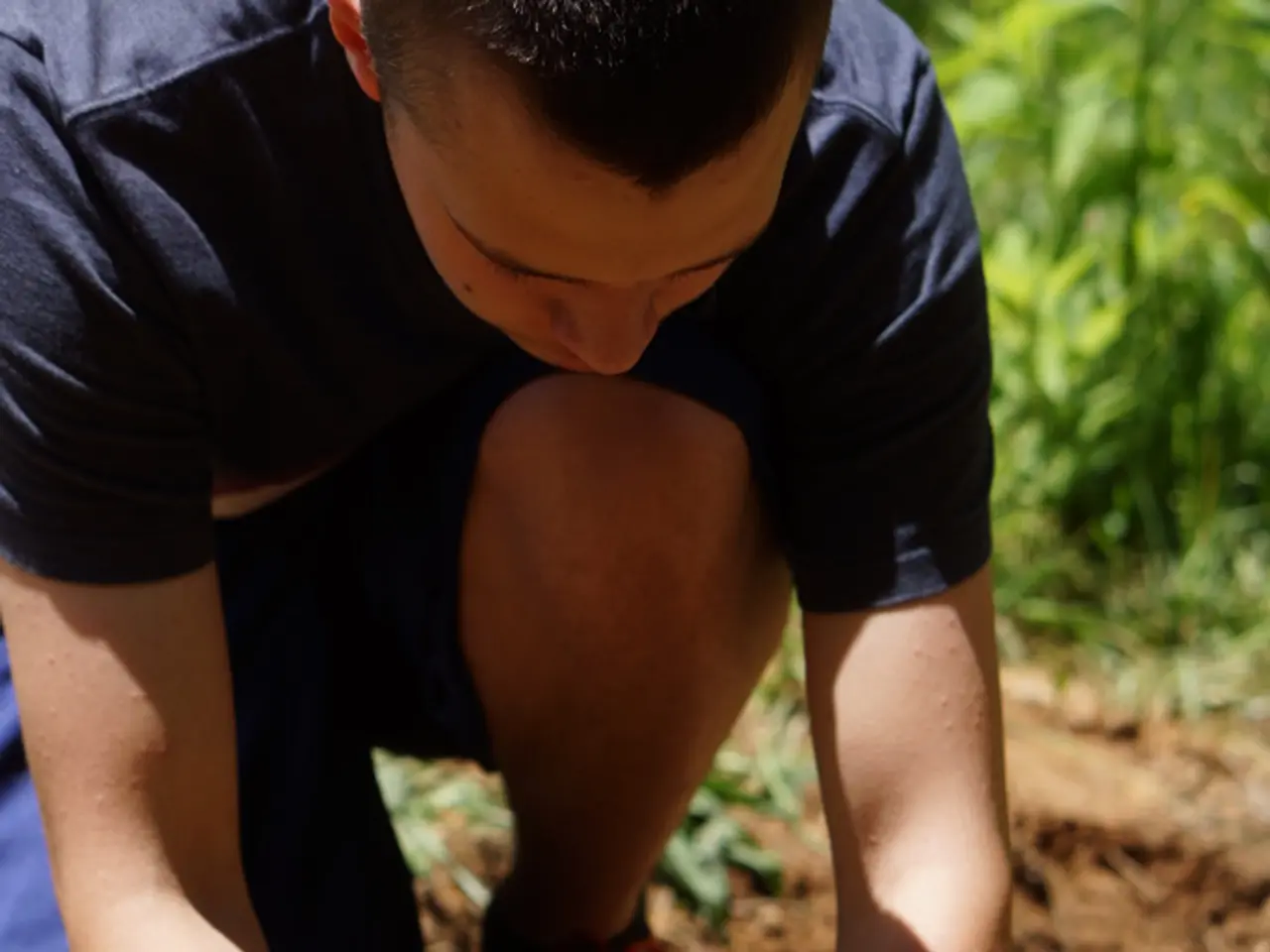Improving Soil Fertility: Essential After-Planting Methods and Strategies
In the realm of gardening, two common household items – Epsom salt and eggshells – have been discovered to play significant roles in nurturing plants. Here's a look at how these everyday items can boost your garden's health and vitality.
Epsom salt, chemically known as magnesium sulfate, is a versatile garden ally. For lawns covering 1,250 square feet, applying 3 pounds of Epsom salt can work wonders. It aids in the absorption of essential nutrients like magnesium, which is vital for photosynthesis and chlorophyll production.
When it comes to houseplants, a monthly feeding of a solution made from 2 tablespoons of Epsom salt per gallon of water can provide the necessary boost.
For roses, a foliar spray containing 1 tablespoon of Epsom salt per gallon of water for each foot of the shrub's height is beneficial. Similarly, shrubs such as evergreens, azaleas, and rhododendrons can benefit from 1 tablespoon of Epsom salt per 9 square feet over the root zone every 2 to 4 weeks.
Trees also reap the rewards of Epsom salt, with 2 tablespoons applied over the root zone three times a year per 9 square feet. When starting a new garden, sprinkling 1 cup of Epsom salt per 100 square feet and mixing it into the soil before planting is recommended.
Eggshells, rich in calcium, potassium, and magnesium, are another garden gem. Crushed eggshells can be sprinkled into planting holes or added directly into the hole when planting a new flower, herb, or vegetable. They gradually release these essential nutrients into the soil, aiding healthy plant growth.
The sharp edges of eggshells also act as a natural pest deterrent, helping to keep critters away from plants. Eggshells can be added to a compost pile or mixed directly into the soil, but it will take at least six months for the eggshells to release their calcium fully.
However, it's essential to remember that overuse of Epsom salt can lead to groundwater pollution through leaching. Always follow the recommended application rates to ensure a balanced and eco-friendly garden.
A balanced fertilizer, either organic or mineral, tailored to plant type and applied according to growth stages, remains the recommended supplement to increase soil nutrient content and strengthen plants. Additionally, amendments like lime (calcium carbonate) or zeolite can improve nutrient availability and soil structure.
In conclusion, Epsom salt and eggshells offer numerous benefits for gardens, from boosting plant growth and acting as pest deterrents to providing essential nutrients. By understanding their roles and using them wisely, gardeners can create healthier, more vibrant gardens.
Read also:
- Peptide YY (PYY): Exploring its Role in Appetite Suppression, Intestinal Health, and Cognitive Links
- Toddler Health: Rotavirus Signs, Origins, and Potential Complications
- Digestive issues and heart discomfort: Root causes and associated health conditions
- House Infernos: Deadly Hazards Surpassing the Flames








